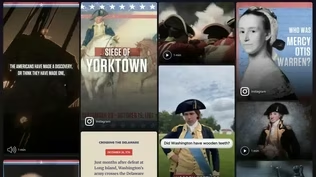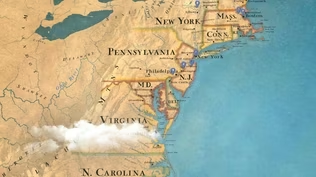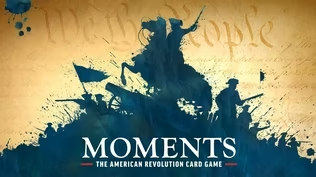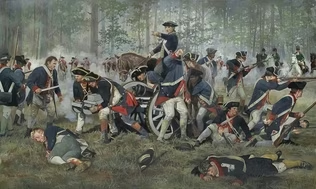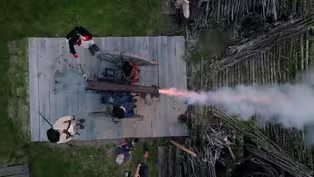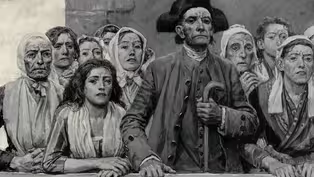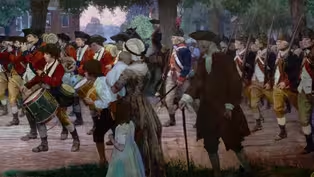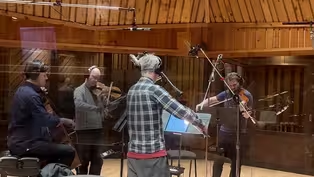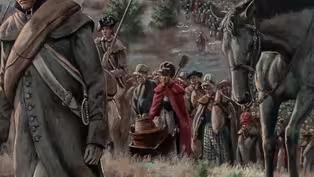
Inside Look | Finding Facts
Clip: Special | 3m 57sVideo has Closed Captions
The filmmakers discuss how the story of The American Revolution came together.
Ken Burns, Sarah Botstein, and David Schmidt discuss how the story of The American Revolution came together.
Problems playing video? | Closed Captioning Feedback
Problems playing video? | Closed Captioning Feedback
Episodes presented in 4K UHD on supported devices. Corporate funding for THE AMERICAN REVOLUTION was provided by Bank of America. Major funding was provided by The Better Angels Society and...

Inside Look | Finding Facts
Clip: Special | 3m 57sVideo has Closed Captions
Ken Burns, Sarah Botstein, and David Schmidt discuss how the story of The American Revolution came together.
Problems playing video? | Closed Captioning Feedback
How to Watch The American Revolution
The American Revolution is available to stream on pbs.org and the free PBS App, available on iPhone, Apple TV, Android TV, Android smartphones, Amazon Fire TV, Amazon Fire Tablet, Roku, Samsung Smart TV, and Vizio.
Buy Now
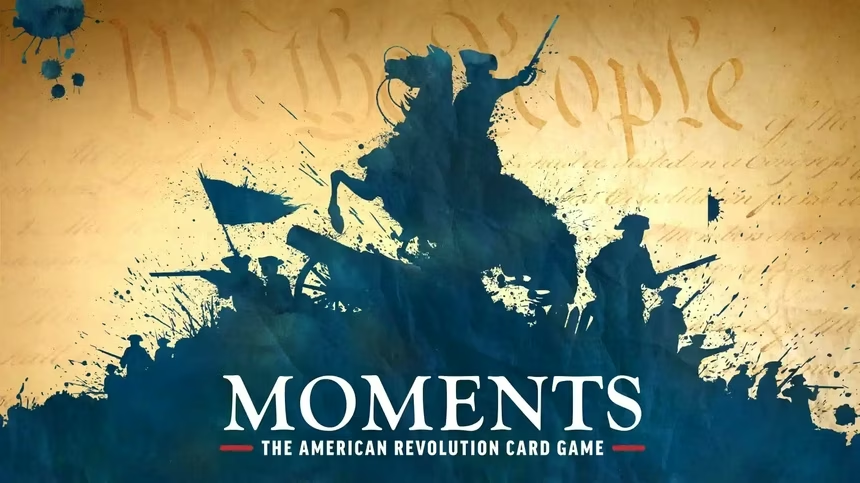
MOMENTS: The Revolutionary War Card Game
Use your knowledge of Revolutionary-era moments to build a timeline of real historical events.Providing Support for PBS.org
Learn Moreabout PBS online sponsorship- It is our creation myth, our creation story.
It tells us who we are, where we came from, what our forebearers believed, and what they were willing to die for.
That's the most profound question any people can ask themselves.
(people shouting) (gun firing) - One of the best parts of my job is to figure out who the historians are, who have spent their lives studying this subject, who is a scholar of this period in the war, who's a writer about this conflict, this battle.
We take that story of the American Revolutionary War and we infuse it with interpretations of those moments with leading scholars on the subject.
We have about two dozen of them.
Many of them are on camera and they hold our feet to the fire the whole time.
They wanna get it right too.
- This inability to really figure out who is the enemy here is a problem.
They marching through the countryside and they don't know this farm, is this farm, are these loyalists?
Are there rebels in there?
Are you gonna shoot at us out of the window, which does happen.
Who do you trust?
- We spend a lot of time thinking about those people and going to meet them and get to know them.
And then we build a board of advisors.
Some of them are on camera, some of them are behind the camera, some of them do both, and they're with us all the way from the first drafts of the scripts till the locked shows are fact checked.
- There's not a objective truth, but there's lots of different ways to see this.
And so what you want to do is employ as many different scholars and writers who know about things, military folks, people who understand the Native American dimension.
What you do is you aggregate a number of people not saying that one particular philosophy of history is right, or one particular view of history is the only way to see it.
You allow a story to have many different perspectives.
- Throughout it's very visceral, and I think the quotes were all great.
I like seeing the Aiken episode, but I think you wanna reconsider sticking it between Fort Washington and Fort Lee following.
- So I think it'll go well in episode one.
It's a breadcrumb for what you do here.
- And there is a good reason, therefore to use it.
But I thought, Maya, that we got to it a little bit too soon.
- Part of what happens in the years before the American War is that liberties are kind of broken out of a national context.
These are not English liberties.
These are transcendent liberties.
These are liberties that all individuals have by the nature of being human.
- One of the reasons that I love making films for public television is that the films live on in the classroom.
- PBS reaches every classroom in the country and we're privileged to meet a lot of those history and social studies and English classrooms.
To see somebody light up with the fact that history gives you a kind of sense of you've just taken a very powerful vitamin and it it gives you a perspective on this moment.
- Film is a powerful teaching tool, and I think every school kid in America, every high school kid, every college kid, every person who watches the film can hopefully find something in this history that relates to them.
- I don't know a greater teacher than history.
It tells you where we've been in order to figure out where you are in order to know where you're going.
(soft music)
Inside Look | Making the Revolution
Video has Closed Captions
Clip: Special | 6m 29s | The filmmakers discuss how they crafted imagery to help tell the story of the American Revolution. (6m 29s)
Inside Look | Our Origin Story
Video has Closed Captions
Clip: Special | 6m 18s | Ken Burns, Sarah Botstein, and David Schmidt on the challenges of telling America's origin story. (6m 18s)
Inside Look | People Just Like Us
Video has Closed Captions
Clip: Special | 3m 37s | The filmmakers on how understanding the people of the Revolution can help us understand who we are. (3m 37s)
Inside Look | Sounds of the Revolution
Video has Closed Captions
Clip: Special | 5m 13s | The filmmakers on how they tapped a broad range of influences to recreate the music of the era. (5m 13s)
Inside Look | Voices of the Revolution
Video has Closed Captions
Clip: Special | 10m 33s | Filmmakers discuss how they used stories of both well-known and lesser known figures. (10m 33s)
Providing Support for PBS.org
Learn Moreabout PBS online sponsorshipSupport for PBS provided by:
Episodes presented in 4K UHD on supported devices. Corporate funding for THE AMERICAN REVOLUTION was provided by Bank of America. Major funding was provided by The Better Angels Society and...

